World Cup 2014: How Twitter and Facebook Broke Social Media Records
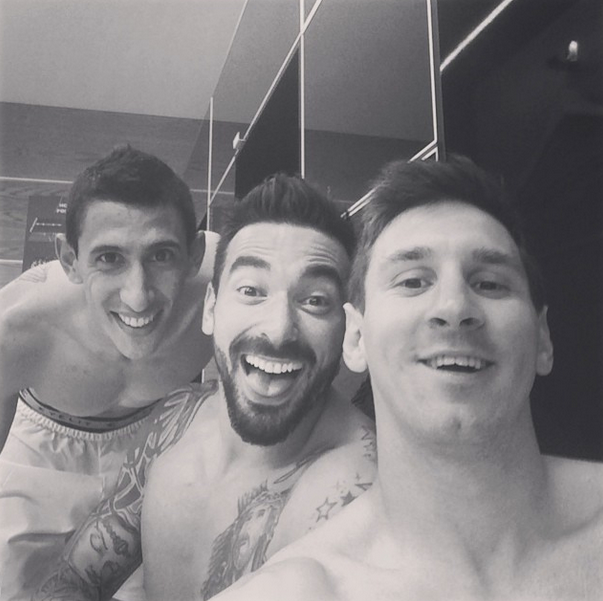
While the debate over whether this was the best World Cup in history will continue for a long time, one thing is for sure - the festival of football in Brazil has become the most talked about event on social media in history.
The debate for social media junkies will of course now revolve around who won the social World Cup - Twitter or Facebook?
Let's look at the stats:
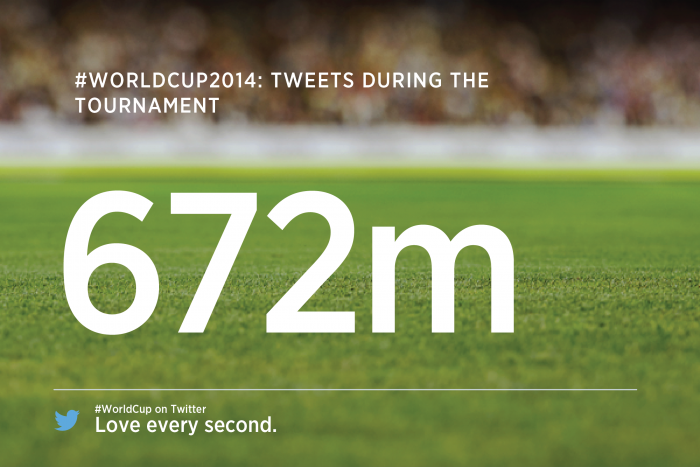
The micro-blogging site has been boasting about its huge figures throughout the World Cup including the fact that the humiliation of hosts Brazil by Germany in the semi-final became the most discussed single sports event ever on Twitter, generating over 35 million tweets, peaking at over 580,000 tweets per minute.
Now Twitter has released overall stats for the World Cup, including the fact that a huge 672 million tweets about the tournament were sent during the 32 day festival of football.
While this is the most tweets ever for a single event, Twitter admits it is hard to compare the 64-game World Cup to the likes of the single-game Super Bowl, the one-night Oscars, or the 16-day Olympics..
Of the top five most tweeted matches, three included the hosts Brazil and the country's talisman Neymar was the most tweeted about player of the tournament followed by Lionel Messi and habitual nibbler Luis Suarez.
Twitter says the World Cup was a truly global tournament with tweets coming from "nearly every country across the globe" but looking at this heat map, it is clear to see the bulk of the volume of traffic was coming from Europe, North American, South East Asia and of course South America.
While not as vocal about its stats during the tournament, Facebook did announce that World Cup 2014 was the most talked-about event in the social network's decade-long history - and that was at the half-way point of the tournament.
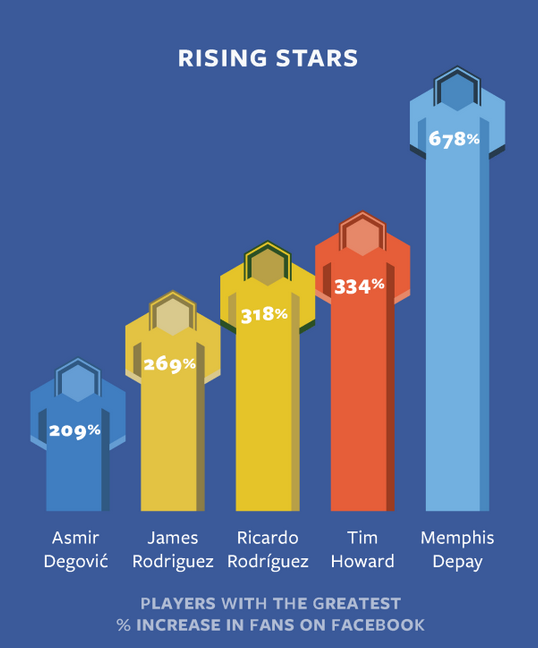
Rounding up the stats from the World Cup, Facebook revealed 350 million people took part in the conversation generating a huge 3 billion "interactions" - which are defined as posts, comments or likes related to the World Cup on Facebook.
As well as celebrating (and crying) in person, Brazilians were the most active on Facebook during the World Cup with 57% of those active on the social network posting something about the tournament over the 32 days.
While Neymar's tournament may have ended prematurely on the pitch, it has been more successful off it. Just like Twitter, Neymar has seen a huge surge in activity on his Facebook page, seeing more than 15 million like his page since 12 June.
Lesser known players have also gained in terms of social media followers, with James Rodriguez and Tim Howard seeing 269% and 334% increase in Facebook followers since the tournament began. However it is Netherland's player Memphis Depay who was the big winner, increasing his following by 678%.
Finally, the showpiece between Argentina and Germany on Sunday broke the record for the highest level of Facebook conversation for any single sporting event in history with 88 million people generating 280 million interactions during the 120 minutes of the final.
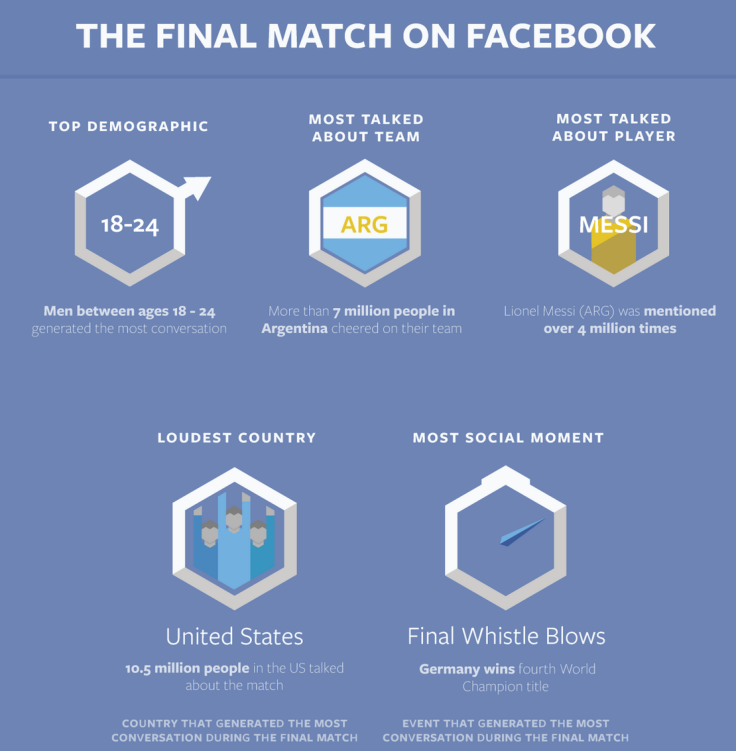
What do all these figures mean?
Some of the figures involved in the social media interactions around the World Cup are so big, it is difficult to get your head around them, but for Facebook and Twitter what it will mean is that they have even more evidence to show advertisers just how crucial this platform is for any major event.
According to Adobe Digital Index (ADI) video was another crucial aspect of the World Cup story, with views of video on mobile devices bigger than ever before.
"Consumer viewing habits are more mobile during sporting events today than ever before," said Joe Martin, an analyst at ADI. "We already proved it during the Super Bowl, and now with the World Cup, it is even more evident that mobile and social media play an important role during large events. Marketers looking to engage with consumers around sporting events need to understand these content consumption habits or risk losing to the competition."
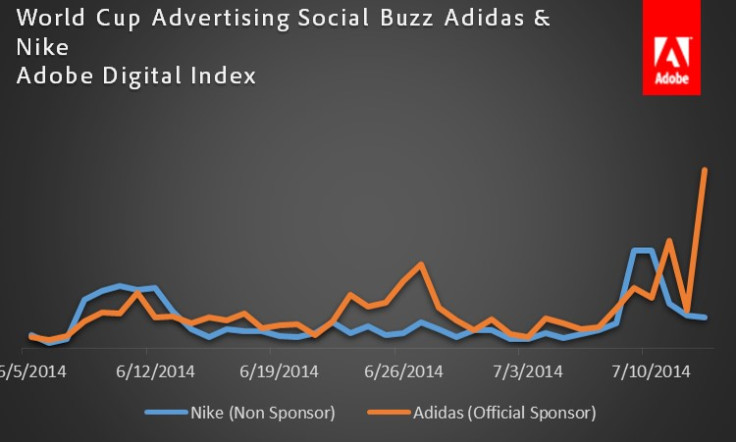
According to ADI, official World Cup sponsors saw a 125% daily "social buzz increase" compared to the daily average for May. Specifically, core sponsor Adidas averaged 71% more daily championship-related social buzz than Nike, which wasn't an event sponsor.
"Social media is extremely important during sporting events because it is how fans interact with one another," Martin said. "Marketers—both sponsors and non-sponsors—can capitalise on the fact that consumers naturally turn to social media during these types of events by meeting them there, with relevant, interesting, and helpful content."
© Copyright IBTimes 2025. All rights reserved.






















